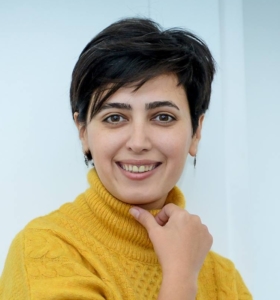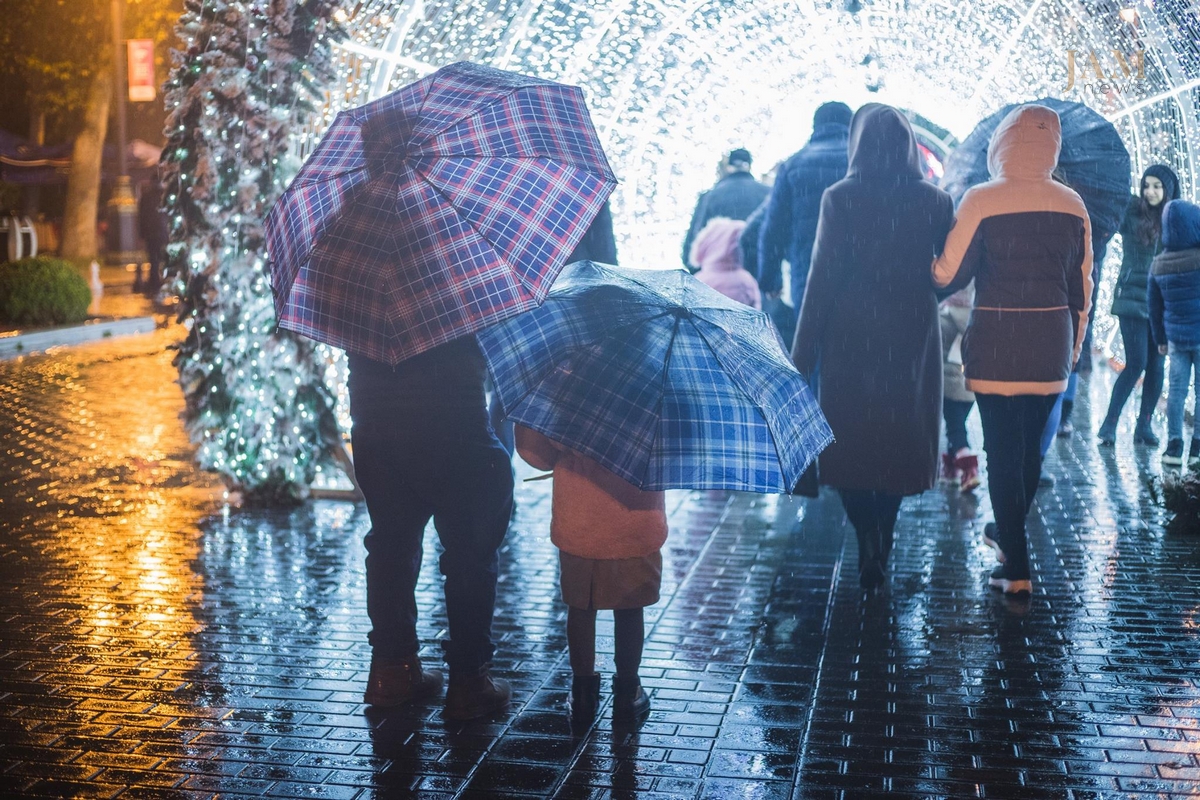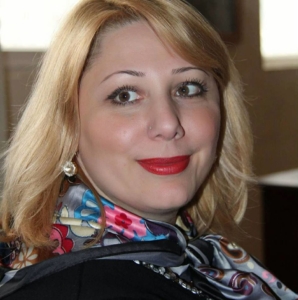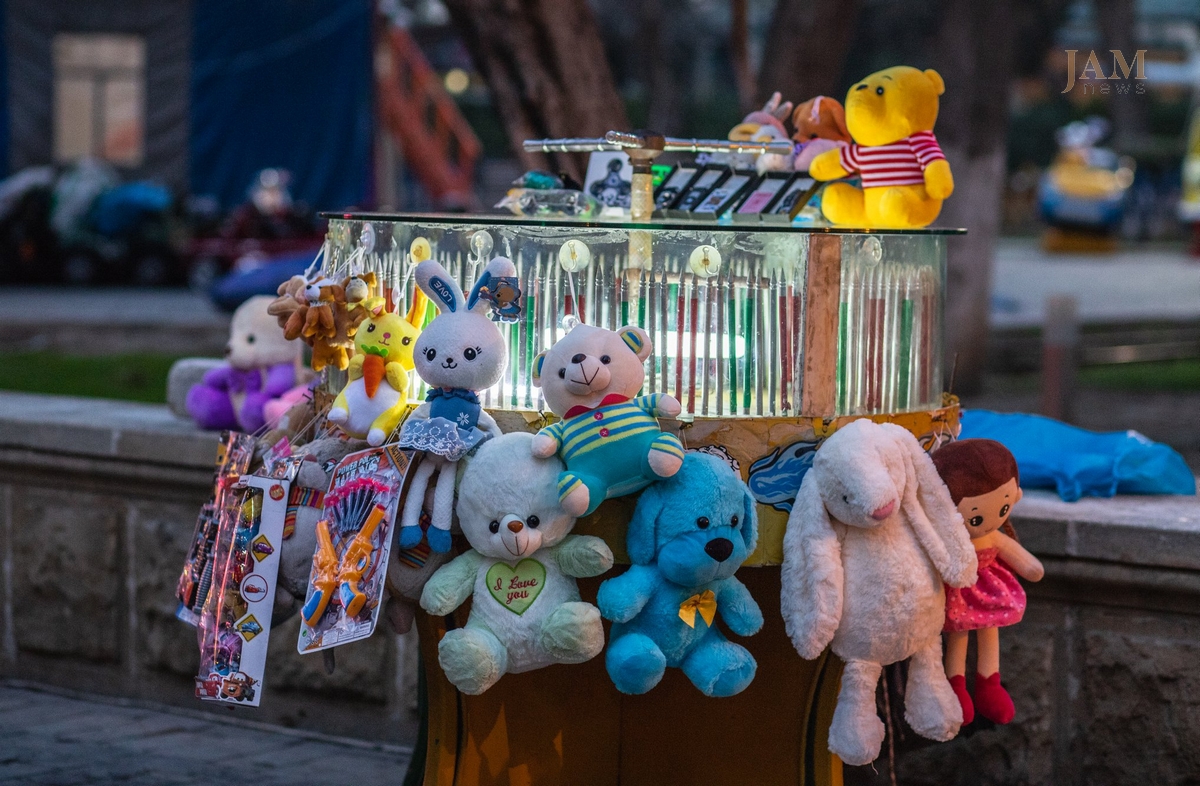Kinship adoption in Azerbaijan: solid tradition or social scourge?
First published: 16.04.2020
V
аfa says she’d never give away her two children, not for anything in this world.
However, she herself was given away by her birth mother and ‘shared’ between her childless relatives.
Now 30 years old, Vаfa was raised by her uncle and aunt, whom she considers her mother and father.
Kinship adoption is not uncommon in Azerbaijan. There is no exact data as to how many such adoptions take place per year, but any Azerbaijani will tell you that, of the 751 adoptions that took place in 2018, a not insignificant number of them were probably kinship adoptions.
A solid tradition, or a violation of rights?
V
afa says she only found out the truth when she was 18.
“I found out by chance thanks to the neighbors’ talkativeness. It was a terrible blow to me. Everything immediately fell into place – I finally understood why my family had such cold relations with my uncle’s family, that is, my real parents.”
Vafa spoke to all the members of her family, and found out how the deal went down.
Vafa’s biological uncle – her adoptive father – had been married for a long time, but he and his wife could not conceive.
His younger brother – Vafa’s biological father – had two daughters in a row. Deciding that his wife would have to “continue giving birth until a boy appears”, the family ruled that his second daughter, Vafa, be given to his elder brother.
“My uncle’s wife — that is, the woman who gave birth to me — was under pressure from the whole family. The family decided to take me away from her and give me to my adoptive mother. All this was done legally through the courts. Only later did my biological mother regret giving me away.
“She went to court to try and get me back. The case was in court for several years. At that time I was already three or four years old. But the court left me in the care of the adoptive family. After that, the relationship between the two brothers –my biological and adoptive fathers – cooled.”

Sociologist Sanubar Heydarova says that the adoption of a child by relatives is harmful to both the mother and the child.
“The transfer of a child is often agreed upon before birth. But when a ‘contractual’ baby is born, then the biological parents, who have experienced all the feelings associated with the child’s birth, and the adoptive parents, who are waiting for ‘their child’, find themselves in a difficult situation.
“These agreements often state that the biological mother should not even feed her baby with her own breast milk as the baby might get accustomed to it. And as soon as a woman who has given birth is discharged from the maternity hospital, the two are immediately considered members of different families.
“It is difficult to describe in words how difficult this process is for the woman who gives birth. If a mother is a relative of the adoptive family, she often regrets that she cannot watch the child grow up, cannot be around them when they’re sick, and hug them during the most important moments of their young lives.
“Sometimes because of this, the relationship between relatives deteriorate, and the adoptive family, in order to keep its secret, moves away and considers the child’s biological family a potential threat,” Heydarov says.
As for the child, immediately after the trauma of birth, they also experience the trauma of being weaned from their mother, and later in life, can often feel the tension between relatives and what is not being stated explicitly.

“Another’s child”
“I just can’t get over the phrase ‘another’s child,’ which they use so often in our society. You cannot imagine how many times I heard the phrase when I decided to adopt a child from an orphanage.
“I heard it from everyone – from my closest friends and relatives, to complete strangers. When my sister found out about my decision, she immediately said: ‘Little good comes from one’s own children, even less so from someone else’s.’ She even offered to give birth to a child for me.
“And when we were collecting medical certificates to stand in line for adoption, one of the doctors asked: ‘Is there really nobody among your relatives who you could have taken a child from? Why should everything that you have acquired with such difficulty be given to someone else’s offspring? It is not yet known how they will grow up.’ ”
But despite all this, Salima [ed. name changed] adopted a girl.
“I don’t understand how you can take a child who has a father and a mother away from them and raise the child right before their eyes. That’s like playing a parenting game. Why take a child who has their own parents away from them, if there are so many abandoned children and orphans who really need a family? Personally, I have already forgotten that I did not give birth to my daughter myself, because her parents do not flash in front of my eyes. She is my child – that’s the end of it,” says Salima.

Lawyer Samira Agayeva says that the kinship adoption procedure is simpler for parents – fewer documents are needed and there is no need to stand in line because biological parents write a statement about the voluntary transfer of custodianship of their child.
“In my practice there was such a case. The woman gave her child to her childless sister. The whole thing was planned from the very beginning. That’s why the child was born. He was taken to his biological aunt’s home straight from the hospital,” says Agayeva.
She kept her daughter and “ruined the family”
M
any years ago, Rasmiya [ed. name changed] had to give one of her three daughters to her husband’s brother, but at the last moment, she changed her mind and could not give up her child:
“My sister-in-law had no children, but we had three daughters and a son. At the same time, I am married to my cousin, so my husband’s brother is also my cousin.
“I was very worried about them. My sister-in-law married for love. But she could not give birth. My husband persuaded me to give them our middle daughter. I didn’t like the idea for a long time, but I eventually agreed.
“They started to get attached to our daughter. They went everywhere together, they took her with them and they bought clothes for her. They treated her like their own child. And it really tormented me. On the one hand, I felt sorry for them, but on the other hand, I felt ashamed. And I realized that no, I could not do it.”
When Rasmiya announced that she had changed her mind, her brother-in-law and his wife were very upset. This was for them the only way to save their marriage. So having failed to become parents, they soon divorced.
“What a strange approach – the child must be of one’s own blood. They could have adopted a child from an orphanage, and the family would not have broken up. For example, my sister did just that – she adopted a child from an orphanage. There aren’t any problems – he was a wonderful child. He is now all grown up and is a wonderful adult man,” Rasmiya laughs.
“My brother-in-law married again and became a father, but he could not be as happy as with his first wife.”

Why kinship adoption?
Heydarova says that the desire to adopt a child from one’s own bloodline is often determined by a lack of awareness:
“Many nations have sayings like ‘the apple doesn’t fall far from the tree’, trying to explain people’s behavior with genetics. In developed countries, as social institutions have developed and as the role of upbringing and education in the formation of a child has become more apparent, this kind of prejudice has disappeared.
“An adopted child can be the cause of tragedy as well as the savior of a family. But since the process of tracking a child’s life in a foster family is not transparent in our country, it is impossible to determine the percentage of adoptions that are successful and that are not. It is thus impossible to show this to the public.
“When there is no accurate information and statistics, the gap is always filled with myths, rumors and misinformed concepts. Azerbaijani ‘fairy tales’ are, as a rule, pessimistic – ‘How do you know whose child it is? Normal parents do not give up their children’ or ‘adoptees don’t trust anyone, they try to hurt everyone around them’.”
If people adopt a child from a relative, then, as they say, “it is clear whose blood flows in his veins”, and this gives the parents a certain peace of mind. However, the consequences of such adoptions may even be worse than bringing in “a random child”.
A
fter Vafa found out about everything, she brought the two families closer together.
She said she did not want to be torn between biological parents and those who raised her. Psychologists who worked with her at the time gave the same advice to their families.
“I had no choice but to come to terms with the situation. But I did not want the shock to intensify with added hostility. Now I have a very good relationship with both my families – my biological family and with the family who raised me. But I know one thing – I will not share my children with anyone.”


















